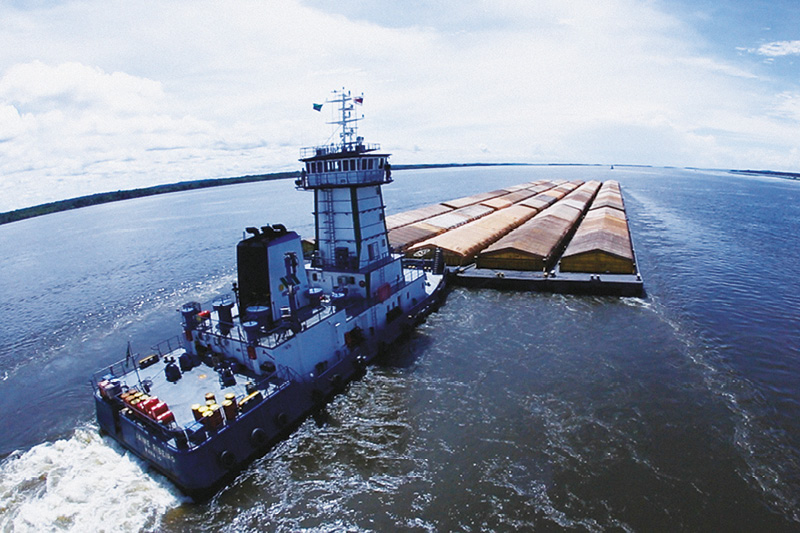
Brazil Potash’s Autazes project, located in the Amazonas region, has the potential to significantly alter the country’s potash landscape, and is progressing toward production every day. The project’s main focus is on potash, an essential mineral for the production of potassium-rich fertilizers. The region’s potash reserves are estimated to be vast, with the potential to produce 2.2 million tonnes annually once the project is fully operational.
The Autazes Potash project’s strategic location, with access to an abundant renewable energy source and proximity to major farming regions, makes it uniquely positioned for success. It could not only alleviate the country’s reliance on imported potash, but also contribute to the local and national economy via job creation and increased revenues.
The Consultation Process and Installation License
The installation license, a pivotal step towards the project’s materialization, has been a focus for the Brazil Potash management. This license is necessary to commence project construction. Its acquisition involves a multi-step consultation process with various stakeholders, including the local communities, environmental agencies, and governmental bodies.
Recently, the President of Brazil’s Federal court (TRF-1) ruled to reinstate Brazil Potash’s Preliminary (Social and Environmental) License, a crucial milestone in obtaining the Installation License. This indicates the government’s willingness to back projects that could contribute to the country’s self-sufficiency in critical sectors and stimulate economic growth.
Impact on Local Communities
One of the main benefits of the Autazes Potash Project is its far-reaching and positive impact on local communities. Brazil Potash is not just focused on mining potash; it is committed to transforming the lives of the residents in the communities where it operates.
Nourishing Communities
Food security is a significant issue in many parts of Brazil, and Brazil Potash is helping to combat this issue through various initiatives. The company has donated large quantities of food to the local communities surrounding the Autazes Potash Project during COVID 19. These donations help to alleviate immediate food security concerns, and they also foster goodwill and trust between the company and the communities in which it operates.
Fostering Sustainable Agriculture
In addition to addressing immediate food security needs, Brazil Potash is also invested in promoting sustainable agriculture within these communities. The company recently donated over 5,000 seedlings to the Amazonas state government, grown in their own nursery located in the Urucurituba village in the Autazes municipality. These seedlings, which include a variety of fruit, forest, ornamental, and medicinal plants, are intended to boost rural production, promote food security, and contribute to combating climate change by sequestering greenhouse gasses.
This initiative aligns with Brazil Potash’s commitment to sustainability and environmental stewardship. It also empowers local farmers by providing them with resources to enhance their livelihoods in a sustainable manner.
Infrastructure Development
Brazil Potash understands the importance of robust infrastructure in community development. That’s why the company has donated construction materials to local municipalities, contributing to the development of community infrastructure. These materials have facilitated the construction and repair of facilities, enhancing the overall quality of life for local residents.
Job Creation and Economic Stimulation
Perhaps the most profound impact of the Autazes Potash Project will be its contribution to local economies through job creation. Brazil Potash has committed to employing local residents in the project, thereby creating a significant number of job opportunities in a region where employment options might otherwise be limited.
In addition to direct employment, the project is also expected to stimulate other sectors of the local economy indirectly. For example, the influx of workers and economic activity surrounding the project could increase demand for local goods and services, benefiting a wide range of businesses and stimulating economic growth in the region.
Potential for a Better Future for Brazilian Agriculture
Brazil’s agriculture sector is expected to benefit from the Autazes Potash project. Potash, a major component of fertilizers, plays a critical role in enhancing soil fertility and crop yield. However, Brazil imports most of its potash requirements, primarily from Canada, Russia and Belarus.
With the Autazes project, Brazil could reduce its dependency on foreign potash, ensuring a stable, locally sourced supply. This could translate to cost reductions for Brazilian farmers due to decreased transportation and import costs. Furthermore, it could lead to a more sustainable and resilient agricultural sector, less susceptible to global supply chain disruptions.
The country has also been receptive to Autazes because the project aligns with Brazil’s efforts towards environmental sustainability. Brazil Potash has a strong focus on environmental, social, and governance (ESG) practices, as demonstrated by its ‘A’ rating from Morgan Stanley Capital International (MSCI). The company also recently donated over 5,000 seedlings to the Amazonas state government, further solidifying its commitment to community development and environmental conservation.
Brazil Potash’s Autazes project, with its vast potential, is poised to redefine the country’s agricultural landscape. It signifies a promising future for Brazilian agriculture, underpinned by sustainability, self-sufficiency, and improved economic prospects. As Brazil Potash continues its journey, the global potash industry and the world are closely watching, with great anticipation, for the beginning of a new era in potash production and global food security.



 Follow us on Twitter
Follow us on Twitter Become our facebook fan
Become our facebook fan










Comments are closed.